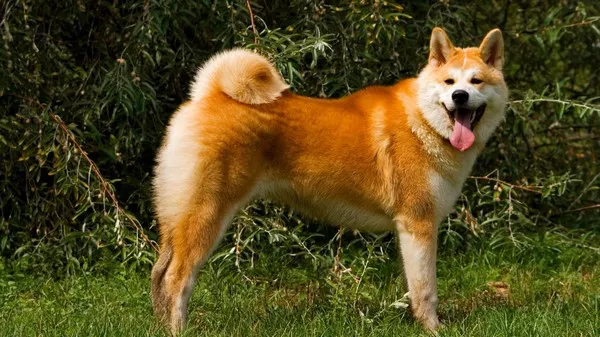Akita dogs are a large and powerful breed originating from Japan. They have a rich history as a hunting and guard dog, and are known for their loyalty, courage, and intelligence. However, the breed has also gained a reputation for being aggressive, which has led some people to question whether they are suitable as pets.
In this article, we will explore the question of whether Akita dogs are aggressive, and what factors contribute to their temperament. We will also examine how to properly train and socialize an Akita, to ensure that they are well-behaved and happy in a domestic setting.
- The Aggression Debate: Are Akita Dogs Naturally Aggressive?
The question of whether Akita dogs are naturally aggressive is a hotly debated topic among dog experts and enthusiasts. Some argue that the breed is inherently aggressive, due to their history as a hunting and guard dog, and their strong territorial instincts. Others point to the fact that the breed is known for its loyalty and affection towards its human family, and suggest that aggression is only a problem when the dog is improperly trained or socialized.
There is some evidence to support both sides of the argument. On the one hand, Akitas have been involved in a number of high-profile attacks on humans and other animals, which suggests that they may have a higher-than-average propensity for aggression. However, it is important to note that the majority of Akitas are well-behaved and friendly, and that many factors contribute to a dog’s behavior, including genetics, upbringing, and environment.
- Factors that Influence the Temperament of Akita Dogs
As with any breed, there are a number of factors that can influence the temperament of an Akita dog. Some of these include:
Genetics: The temperament of an Akita dog is largely determined by its genetic makeup. Akitas are known for their independent and stubborn nature, which can make them more challenging to train than other breeds. However, they are also loyal and affectionate towards their human family, which can make them excellent pets for experienced dog owners.
Upbringing: The way that an Akita is raised and trained can have a significant impact on its temperament. Proper socialization and training from a young age can help to reduce the likelihood of aggressive behavior, while neglect or abuse can make a dog more prone to aggression and other behavioral problems.
Environment: The environment in which an Akita is raised can also play a role in its temperament. Dogs that are kept in stressful or abusive environments are more likely to develop aggressive tendencies, while dogs that are exposed to a variety of positive experiences are more likely to be well-adjusted and friendly.
- How to Train and Socialize an Akita Dog
If you are considering getting an Akita dog, it is important to understand that proper training and socialization are essential for a well-behaved and happy pet. Here are some tips for training and socializing your Akita:
Start Early: Begin socializing your Akita as early as possible, ideally when they are still a puppy. This will help them to develop positive associations with people, other dogs, and different environments.
Be Consistent: Consistency is key when training an Akita. Make sure that everyone in your household is on the same page when it comes to training and discipline, and be firm and consistent with your commands and expectations.
Use Positive Reinforcement: Akitas respond well to positive reinforcement, such as praise, treats, and toys. Use these rewards to encourage good behavior, rather than punishing your dog for bad behavior.
Expose Them to a Variety of Experiences: Akitas can be wary of new people and situations, so it is important to expose them to a variety of experiences from an early age. Take them on walks in different environments, introduce them to new people and animals gradually, and provide positive reinforcement when they exhibit calm and friendly behavior.
Enroll Them in Obedience Training: Akitas are a strong and independent breed, and may require more intensive training than some other breeds. Consider enrolling your Akita in obedience training classes, which can help them to learn basic commands and socialize with other dogs and people.
Supervise Them Around Children and Other Pets: While Akitas can be affectionate towards their human family, they can also be aggressive towards strangers and other animals. It is important to supervise your Akita around children and other pets, and to teach them how to interact calmly and safely with others.
In conclusion, the question of whether Akita dogs are aggressive is a complex and debated topic. While some Akitas may be more prone to aggression than others, many factors contribute to a dog’s behavior, including genetics, upbringing, and environment. Proper training and socialization are essential for a well-behaved and happy Akita, and it is important to supervise them around children and other pets.
If you are considering getting an Akita dog, it is important to do your research and understand the breed’s characteristics and needs. Akitas can make loyal and affectionate pets, but they also require a firm and experienced owner who can provide them with the training and socialization they need to thrive in a domestic setting.


























